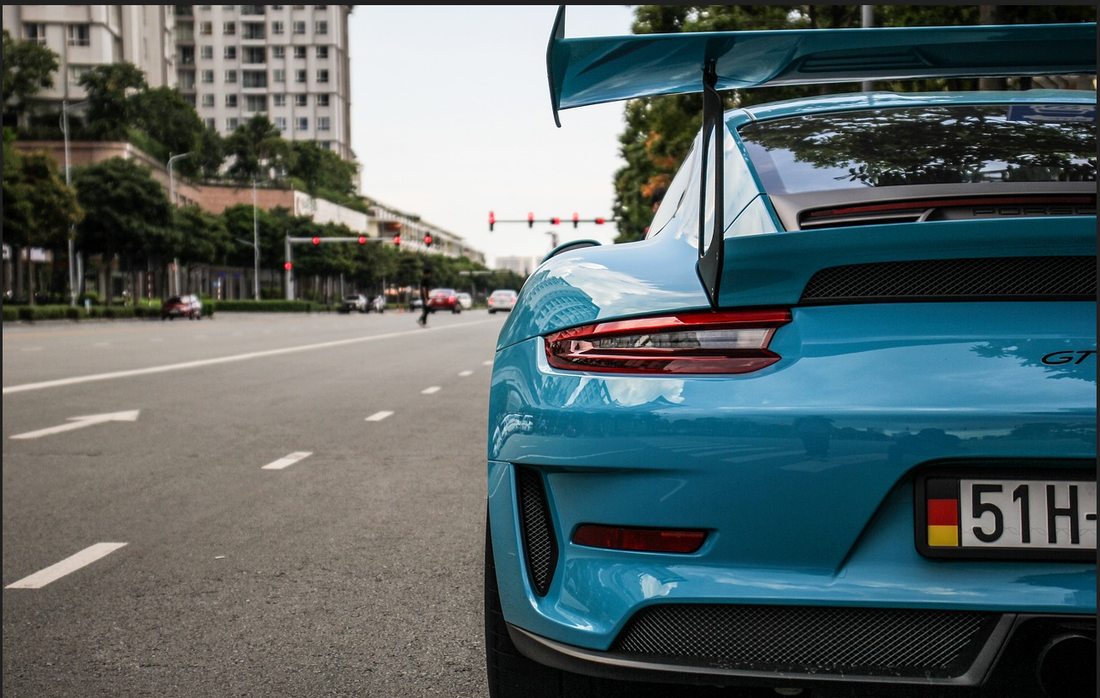Introduction
In the world of car detailing, ceramic coatings have emerged as a game-changer, providing unparalleled protection and shine for your vehicle's paintwork. But with a plethora of options available, finding the right ceramic coating can be overwhelming. This guide is designed to simplify the process and help you find your ideal ceramic coating with ease. We are top rated ceramic coating provider in scottsdale
Read More :
Ceramic Coating vs PPF: The Ultimate Battle for Paint Protection
What are ceramic coatings and why are they important?
Ceramic coatings are liquid polymer solutions that chemically bond with the surface of your car's paint, forming a protective layer that repels dirt, water, UV rays, and environmental contaminants. They offer long-lasting protection, durability, and a high-gloss finish that enhances the appearance of your vehicle. Ceramic coatings are essential for preserving your car's paintwork, preventing oxidation, fading, and damage from harsh elements.

The importance of ceramic coatings lies in their ability to provide unparalleled protection and enhancement for a vehicle's paintwork.
Types of ceramic coatings and their applications
SiO2 Ceramic Coatings:
Description: SiO2 (silicon dioxide) ceramic coatings are the most common type and typically consist of nanoparticles of silica suspended in a solvent carrier. These coatings chemically bond with the surface of the paint, forming a durable protective layer.
Applications:
- SiO2 coatings are versatile and can be used on various surfaces, including paint, glass, plastic, and metal.
- They provide excellent hydrophobic properties, repelling water and preventing contaminants from adhering to the surface.
- SiO2 coatings offer long-lasting protection and enhanced durability, making them suitable for daily drivers and enthusiasts alike.
TiO2 Ceramic Coatings:
Description: TiO2 (titanium dioxide) ceramic coatings contain nanoparticles of titanium dioxide, which provide UV protection and enhance the coating's durability and longevity.
Applications:
- TiO2 coatings are commonly used for automotive applications, providing UV protection to prevent fading and deterioration of the paintwork.
- They offer similar hydrophobic properties to SiO2 coatings, repelling water and making the surface easier to clean and maintain.
- TiO2 coatings are ideal for vehicles exposed to prolonged sunlight and harsh environmental conditions.
Hybrid Ceramic Coatings:
Description: Hybrid ceramic coatings combine the benefits of SiO2 and TiO2 nanoparticles to provide enhanced protection, durability, and performance.
Applications:
- Hybrid ceramic coatings offer the best of both worlds, providing superior UV protection, hydrophobic properties, and durability.
- They are suitable for all types of vehicles, from daily drivers to high-performance sports cars, and can be used on a variety of surfaces.
- Hybrid ceramic coatings are ideal for enthusiasts seeking maximum protection and gloss for their vehicles.
Graphene Ceramic Coatings:
Description: Graphene ceramic coatings incorporate graphene nanoparticles, which offer exceptional strength, flexibility, and conductivity.
Applications:
- Graphene coatings provide advanced protection against scratches, chips, and abrasions, thanks to their superior strength and durability.
- They offer enhanced heat resistance, making them suitable for use on high-performance vehicles and in extreme driving conditions.
- Graphene coatings are ideal for enthusiasts looking for the ultimate in paint protection and performance.
Professional-Grade Ceramic Coatings:
Description: Professional-grade ceramic coatings are typically applied by trained technicians and offer the highest level of protection, durability, and performance.
Applications:
- Professional-grade coatings often come with multi-year warranties and require professional installation to ensure optimal results.
- They are designed for enthusiasts and collectors who demand the best in paint protection and are willing to invest in premium products and services.
- Professional-grade coatings provide unparalleled gloss, shine, and protection, making them ideal for luxury and exotic vehicles.
In summary, there are several types of ceramic coatings available, each offering unique benefits and applications. Whether you're looking for long-lasting protection, enhanced gloss, or superior durability, there's a ceramic coating to suit your specific needs and preferences. Be sure to research and choose the right type of coating for your vehicle to ensure maximum performance and satisfaction.
Factors to consider when choosing a ceramic coating

When selecting a ceramic coating, consider the following factors to ensure you find the right one for your car:
Durability and longevity:
- Longevity: Consider the durability and lifespan of the ceramic coating. Look for products that offer long-lasting protection, reducing the need for frequent reapplication.
- Resistance: Evaluate the coating's resistance to scratches, chips, stains, and environmental contaminants. Choose a coating that provides robust protection against everyday hazards
Hydrophobic properties:
- Water Repellency: Assess the hydrophobic properties of the ceramic coating, which determine its ability to repel water and prevent contaminants from adhering to the surface.
- Ease of Cleaning: Choose a coating that makes cleaning and maintenance easier by minimizing water spots, dirt buildup, and grime accumulation.
Gloss enhancement:
- Shine and Clarity: Look for ceramic coatings that enhance the gloss and clarity of your vehicle's paint, giving it a deep, reflective shine that rivals showroom quality.
- Depth of Color: Consider how the coating enhances the depth and richness of your car's color, accentuating its aesthetic appeal and visual impact.
UV Protection:
- Fade Resistance: Evaluate the coating's ability to protect against UV rays from the sun, which can cause fading, oxidation, and deterioration of the paint over time.
- UV Blocking: Choose a ceramic coating that blocks harmful UV radiation, preserving the color and integrity of your vehicle's paintwork for longer.
Warranty Coverage:
- Manufacturer Warranty: Check if the ceramic coating comes with a warranty from the manufacturer. Look for warranties that cover defects, yellowing, peeling, and other issues to provide added peace of mind.
- Installation Warranty: Consider whether the installer offers a warranty on the application of the coating. Ensure the warranty terms are clear and comprehensive to protect your investment.
Application Process:
- Ease of Application: Evaluate the ease of application of the ceramic coating. Some coatings require professional installation, while others are designed for DIY application.
- Compatibility: Consider whether the coating is compatible with your vehicle's paint type and any existing coatings or treatments. Ensure compatibility to avoid compatibility issues or adverse reactions.
Price and Value:
- Cost: Compare the cost of different ceramic coatings and assess their value in terms of performance, durability, and benefits.
- Long-Term Savings: Consider the long-term savings associated with investing in a high-quality ceramic coating. Factor in reduced maintenance costs, fewer paint repairs, and increased resale value.
Reputation and Reviews:
- Brand Reputation: Research the reputation of the ceramic coating brand and manufacturer. Look for trusted brands with a track record of quality and customer satisfaction.
- Customer Reviews: Read reviews and testimonials from other users to gauge their experiences with the ceramic coating. Pay attention to feedback on durability, performance, and ease of application.
Professional Installation:
- Expertise: Consider whether professional installation is required for the ceramic coating. Evaluate the expertise and experience of the installer to ensure proper application and optimal results.
- Certification: Look for installers who are certified and trained in ceramic coating application techniques. Verify their credentials and qualifications to ensure quality workmanship.
Understanding the benefits and drawbacks of ceramic coatings
Benefits of Ceramic Coatings:
- Ceramic coatings provide a strong protective layer against various environmental contaminants such as dirt, debris, bird droppings, tree sap, and UV rays.
- They shield the vehicle's paint from scratches, swirl marks, oxidation, and chemical stains, preserving its appearance and value over time.
- Ceramic coatings exhibit hydrophobic properties, causing water and liquids to bead and roll off the surface easily.
- This hydrophobicity makes washing the vehicle easier and reduces water spots, helping to maintain a cleaner and shinier appearance.
- Ceramic coatings enhance the gloss and depth of the vehicle's paint, providing a showroom-like finish.
- The coating amplifies the natural color of the paint, giving it a vibrant and reflective appearance that catches the eye.
- Compared to traditional wax or sealant applications, ceramic coatings offer longer-lasting protection.
- A properly applied ceramic coating can last for several years, reducing the need for frequent reapplication and saving time and money on maintenance.
- With its self-cleaning properties and resistance to dirt and grime, a ceramic-coated vehicle requires less frequent washing and detailing.
- The smooth and slick surface created by the coating makes it harder for contaminants to adhere, resulting in a cleaner vehicle for longer periods.
Drawbacks of Ceramic Coatings:
- Cost:
- Ceramic coatings typically come with a higher upfront cost compared to traditional wax or sealant products.
- Professional application by trained detailers can further increase the overall expense, making it a significant investment for some car owners.
- Professional Application Required:
- Achieving optimal results with ceramic coatings often requires professional application by experienced detailers.
- Improper application may lead to uneven coverage, streaking, or other issues that affect the appearance and effectiveness of the coating.
- Preparation and Cure Time:
- Proper preparation of the vehicle's paint surface is crucial before applying a ceramic coating.
- Additionally, ceramic coatings require a curing period after application, during which the vehicle should not be exposed to water or harsh conditions.
- Limited Correction Abilities:
- Ceramic coatings cannot correct or conceal existing paint defects such as swirl marks, scratches, or paint chips.
- Any imperfections in the paint should be addressed before applying the coating to ensure a smooth and flawless finish.
- Potential for Misapplication:
- Inexperienced or DIY application of ceramic coatings can result in issues such as streaks, bubbles, or an uneven texture.
- Choosing a reputable and skilled detailer is essential to avoid such problems and achieve the desired results.
- Limited Warranty Coverage:
- While some ceramic coatings come with warranties against defects or premature failure, coverage may vary depending on the brand and product.
- Car owners should carefully review the warranty terms and conditions to understand the extent of coverage provided.
Finding the right ceramic coating for your specific needs
To find the right ceramic coating for your car, consider your budget, desired level of protection, and aesthetic preferences. Research different brands and products, read reviews, and consult with professional detailers to determine which coating best meets your needs. Look for a ceramic coating that offers a balance of durability, gloss, and value for optimal results.
Finding Reliable Suppliers and Installers for Ceramic Coatings

When choosing a supplier and installer for your ceramic coating, consider the following factors:
- Reputation and experience: Look for suppliers and installers with a proven track record of quality work and customer satisfaction.
- Certification and training: Verify that the installer is certified and trained in proper ceramic coating application techniques.
- Product selection: Choose a supplier that offers a wide range of ceramic coating options to find the perfect solution for your car.
- Warranty coverage: Select a supplier and installer that provides warranty coverage for the ceramic coating to protect your investment.
Conclusion: Investing in the right ceramic coating for long-term results
Investing in a high-quality ceramic coating is essential for protecting and enhancing the appearance of your vehicle's paintwork. By considering factors such as durability, hydrophobic properties, gloss enhancement, and warranty coverage, you can find the ideal ceramic coating for your specific needs. With the right product and professional installation, you can enjoy long-lasting shine and protection for your car, ensuring it looks its best for years to come.

